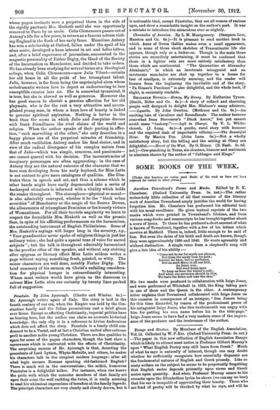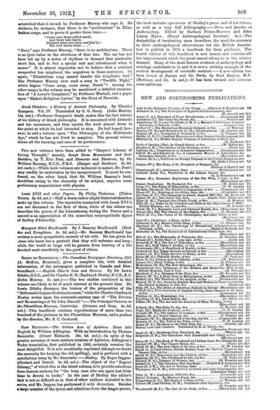Essays and Studies. By Members of the English Association. Vol.
iii. Collected by W. P. Ker. (Oxford University Press. Ss. net.) —The paper in this new collection of English Association Essays which is likely to attract most notice is Professor Gilbert Murray's upon "What English Poetry may still learn from Greek." Much of what he says is naturally of interest, though one may doubt whether he sufficiently recognizes how essentially disparate are the fundamental natures of English and Greek prosody. Like so many writers on the subject he seems to be perpetually forgetting that English metre depends primarily upon stress and Greek metre upon quantity. And vihen Professor Murray comes to his remarks upon the Elizabethan lyrics he shows (we can say no less). that his ear is incapable of appreciating their beauty. Those who are fond of poetry will be shocked by what he says, and will be astonished that it should be Professor Murray who says it. He declares, for instance, that there is no " architecture " in Eliza- bethan songs, and to prove it quotes these lines :— " Come unto these yellow sands, And there take hands.
Curtsied when you have, and kiss'd,— The wild waves whist. . ."
"Here," says Professor Murray, "thero is no architecture. There is no lyric value in the shortness of that lino. The ear has not been led up by a series of rhythms to demand that particular short line, and to feel a special rest and refreshment when it comes.' It is almost impossible not to believe that a criminal compositor has misplaced the negatives in these sentences. Or again, "Elizabethan song cannot handle the trisyllabie foot." Has Professor Murray ever read a song in "Twelfth Night," which begins "Come away, come away, Death "? Among the other essays in the volume may be mentioned a detailed examina- tion of "A Lover's Complaint," by Professor Mackail, and a paper upon "Blake's Religious Lyrics," by the Dean of Norwich.



















































 Previous page
Previous page